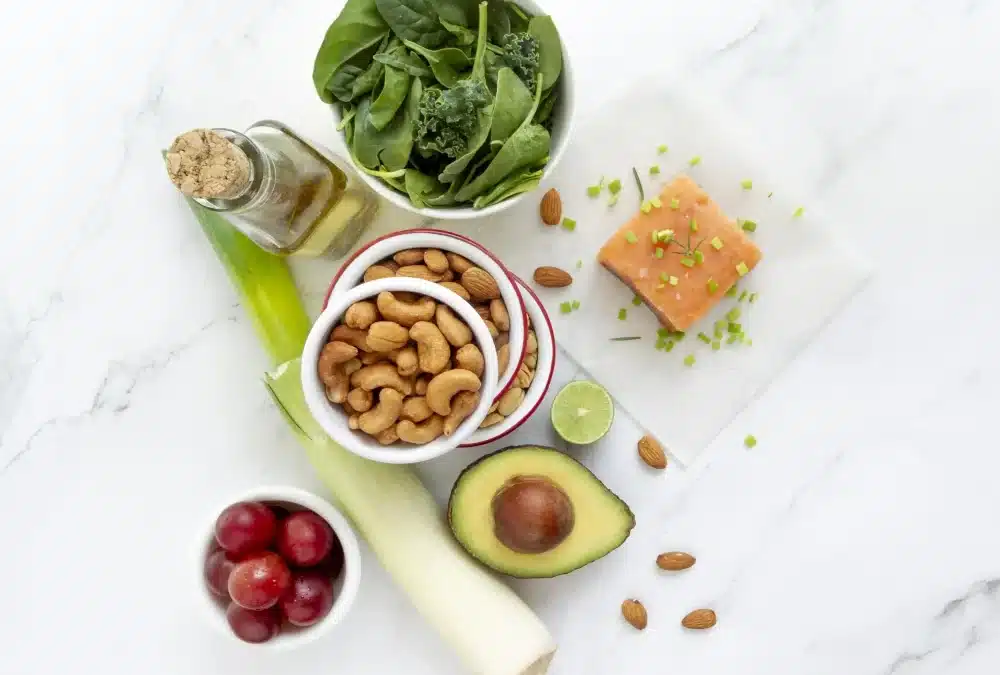Irritable Bowel Syndrome (IBS) is a common gastrointestinal disorder that can cause discomfort, bloating, gas, and irregular bowel movements. While there is no one-size-fits-all solution for managing IBS, diet plays a crucial role in alleviating symptoms and promoting gut health. This comprehensive guide explores the best foods to eat when you have IBS, helping you make informed dietary choices for improved well-being.
Understanding IBS and Its Triggers
IBS is a chronic condition that affects the functioning of the digestive system. While the exact cause is not fully understood, various factors, including diet, stress, and gut microbiota, can contribute to its development and exacerbation. IBS is often categorized into different subtypes based on predominant symptoms: IBS-D (diarrhea-predominant), IBS-C (constipation-predominant), and IBS-M (mixed).
Certain foods and dietary habits can trigger IBS symptoms or exacerbate discomfort. It’s essential to identify your individual triggers through trial and error, keeping a food diary, and consulting with a healthcare professional.
The Low FODMAP Diet: A Guiding Principle
The Low FODMAP diet is a dietary approach that has gained popularity for managing IBS symptoms. FODMAPs (Fermentable Oligosaccharides, Disaccharides, Monosaccharides, and Polyols) are types of carbohydrates that can ferment in the gut and trigger symptoms in some individuals with IBS. The Low FODMAP diet involves temporarily avoiding high-FODMAP foods and gradually reintroducing them to identify specific triggers.
Best Foods to Choose
When managing IBS, focus on incorporating these gut-friendly foods into your diet:
- Low-FODMAP Fruits: Blueberries, strawberries, kiwi, oranges, grapes, and bananas are generally well-tolerated. Limit high-FODMAP fruits like apples, pears, and watermelon.
- Vegetables: Opt for low-FODMAP vegetables such as carrots, spinach, zucchini, cucumbers, and bell peppers. Limit intake of onions, garlic, and cruciferous vegetables like broccoli and cauliflower.
- Protein: Lean proteins like chicken, turkey, fish, and eggs are IBS-friendly options. Plant-based protein sources like tofu and tempeh are also good choices.
- Grains: Stick to gluten-free grains like rice, oats, quinoa, and corn. Avoid wheat-based products that may exacerbate symptoms.
- Dairy Alternatives: Lactose-free or low-lactose dairy products, such as lactose-free milk and hard cheeses, are suitable choices. Plant-based milk alternatives like almond, coconut, or lactose-free cow’s milk can be beneficial.
- Healthy Fats: Include sources of healthy fats like olive oil, avocados, and nuts. These fats support gut health and overall well-being.
- Herbs and Spices: Flavor your dishes with herbs and spices like ginger, turmeric, and fennel, which have anti-inflammatory and digestive benefits.
- Probiotic-Rich Foods: Incorporate fermented foods like yogurt (if tolerated), kefir, sauerkraut, and kimchi. Probiotics can promote a balanced gut microbiome.
- Hydration: Drink plenty of water throughout the day to support digestion and prevent dehydration.
Foods to Limit or Avoid
While focusing on the best foods for IBS, it’s also essential to be mindful of foods that can trigger symptoms. Here are some to limit or avoid:
- High-FODMAP Foods: Onions, garlic, wheat, beans, lentils, and certain fruits can trigger discomfort in some individuals with IBS.
- Fatty and Fried Foods: Greasy and fried foods can exacerbate symptoms in individuals with IBS-D.
- Carbonated Beverages: Soda and carbonated drinks can lead to gas and bloating.
- Caffeine and Alcohol: Both can irritate the digestive tract and worsen symptoms.
- Artificial Sweeteners: Sorbitol, mannitol, and xylitol can cause gastrointestinal distress.
Individual Variability
It’s important to note that everyone’s response to specific foods varies. While certain foods may be well-tolerated by some individuals, they might trigger symptoms in others. Keeping a food diary and seeking guidance from a registered dietitian or healthcare professional can help identify your personal triggers and tailor your diet accordingly.
Lifestyle Factors
In addition to dietary choices, consider these lifestyle factors to manage IBS:
- Stress Management: Stress can exacerbate IBS symptoms. Incorporate relaxation techniques, such as meditation, yoga, and deep breathing, into your routine.
- Physical Activity: Regular exercise can support digestion and promote overall well-being.
- Adequate Sleep: Prioritize getting enough restful sleep, as sleep disturbances can impact gut health.
Seeking Professional Guidance
Consulting with a registered dietitian, nutritionist, or healthcare provider is invaluable when managing IBS through dietary changes. These professionals can provide personalized guidance, create tailored meal plans, and ensure you’re meeting your nutritional needs.
Conclusion
Navigating IBS through dietary choices requires patience, experimentation, and a personalized approach. By incorporating gut-friendly foods, practicing portion control, and being mindful of triggers, you can take proactive steps toward managing your symptoms and improving your quality of life. Remember that every individual’s journey is unique, and seeking professional guidance is crucial to finding the best foods that work for you and support your digestive well-being.
You can get treatment for your IBS symptoms with the help of a medical specialist at the As Designed Wellness clinic in Dana Point, Orange County, California. Please fill out this form or give the clinic a call at (949) 412-6815 to arrange a consultation if you’re interested.

